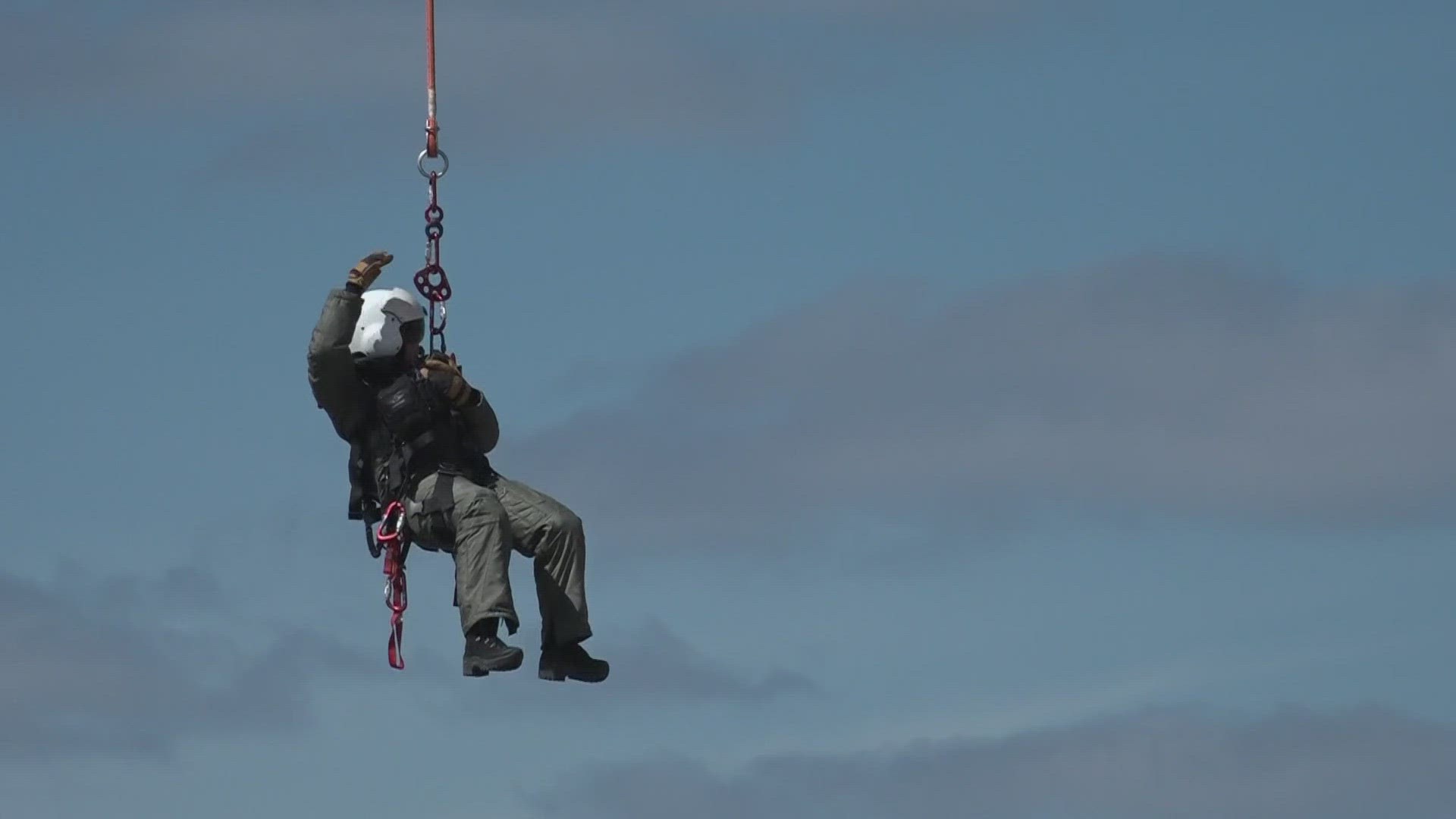OLD TOWN, Maine — With anywhere from 10,000 to 40,000 people expected to travel to Maine to see the eclipse next week, state agencies like the Maine Forest Service are taking steps to prepare just in case they have to respond to an emergency.
Rangers from the Maine Forest Service's short haul specialized team completed their year-round, bi-monthly training that allows them to practice mock rescue missions. Six rangers and five pilots from the short haul team will be stationed in Carrabassett, Island Falls, and Old Town during the eclipse, ready to respond when someone is in need.
With the incoming snowstorm and mud season in full swing, the risk of people getting stuck in remote areas while they attempt to get the best view of the eclipse is high, ranger specialist Kent Nelson said.
If someone is in danger or experiencing an emergency during the eclipse, Nelson said rangers on the ground and in the air will be ready to help.
"We don't know how many are going to come," Nelson said. "But, if you've got, say, 40,000 people in northern Maine, some of them are going to need assistance."
Nelson said he encourages people to stay on pavement and go to organized events, avoiding remote areas and back roads that may be unsafe.
"You may think you have a rugged vehicle that can get in there, but if that snow softens during the afternoon because of the warm temperatures—you're going to be stuck," Nelson said.
People who find themselves stuck and in danger during the eclipse may have a helicopter filled with rangers from the short haul specialized team come to their rescue. A ranger who is strapped to a cord and suspended from the helicopter would bring them aid or rescue equipment or even airlift them a short distance to safety.
"Anybody that is in this line of work has a service-oriented mind, and they want to be able to help others when they're here," Zach Monroe said.
Monroe said everyone on the team has built an immense amount of trust in each other. He explained that rangers do a buddy check to make sure they are properly strapped to the line that lifts them into the air before they begin any rescue mission.
"Any time you're dealing with aircraft, it's risky in nature, and certainly, when you add to the fact that now you have somebody hanging underneath the aircraft, there's an inherent risk there," Monroe said.
Right now, they're preparing for unexpected emergencies that could happen during the eclipse—but rangers say they're always prepared for any lifesaving mission that comes their way.
"We have to make sure that we're not just satisfactory at it, but that we get it down and get it perfect because it's our safety that's on the line and the people that we're trying to help's safety on the line," Monroe said.
Nelson said the team plans to have three helicopters ready to go on eclipse day.

